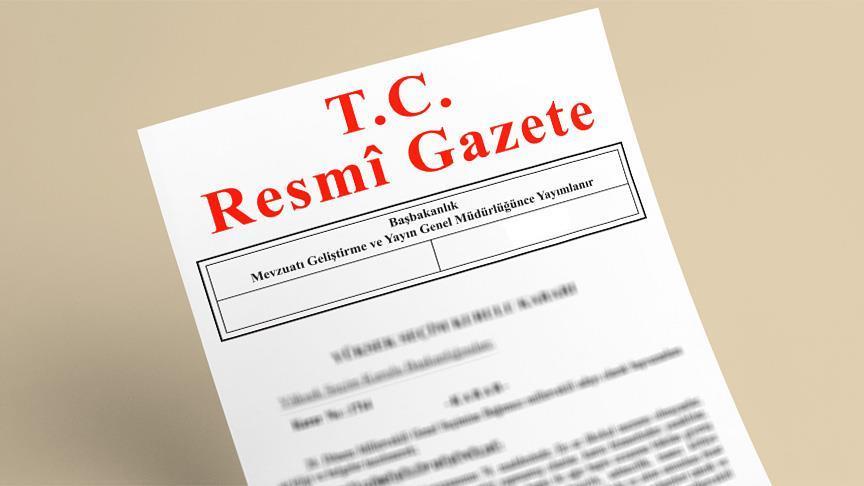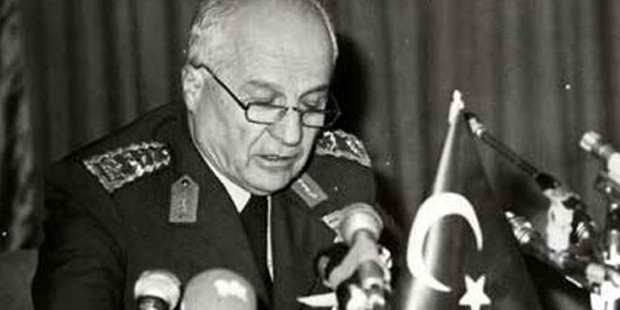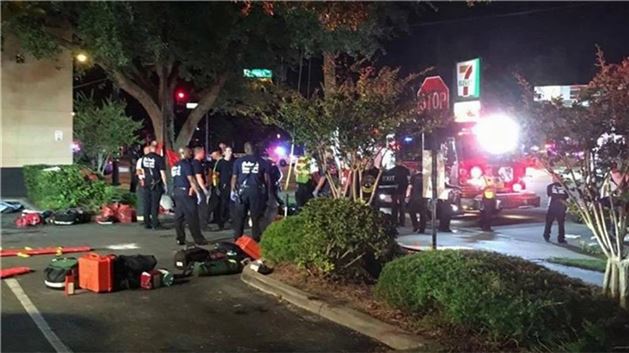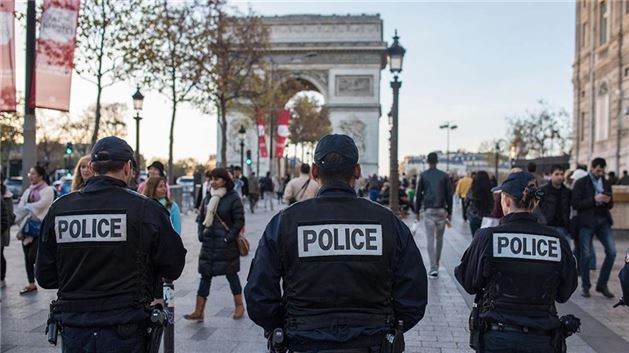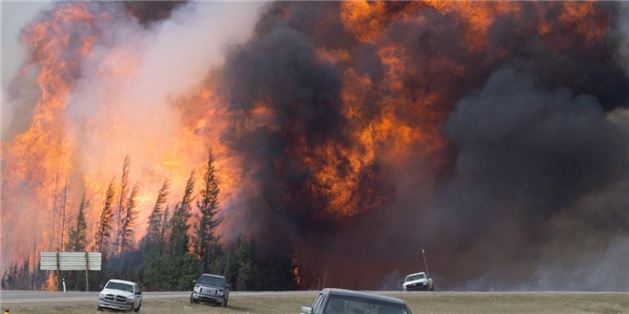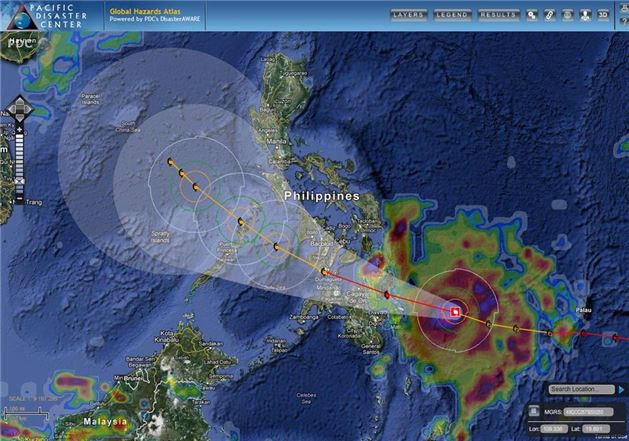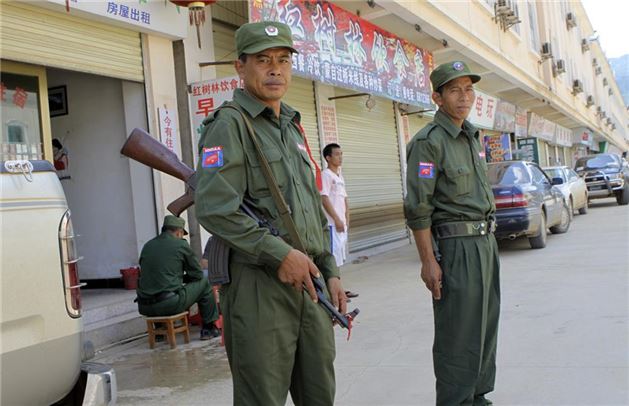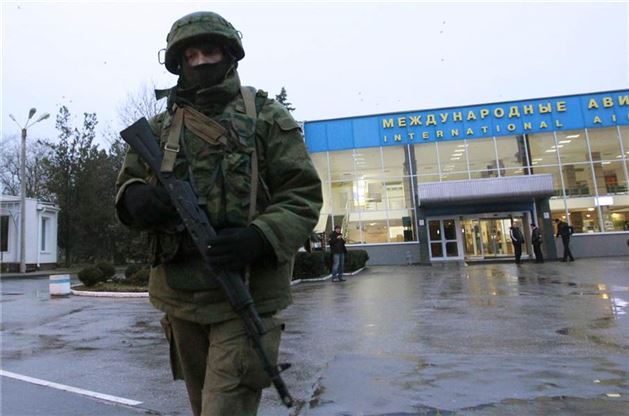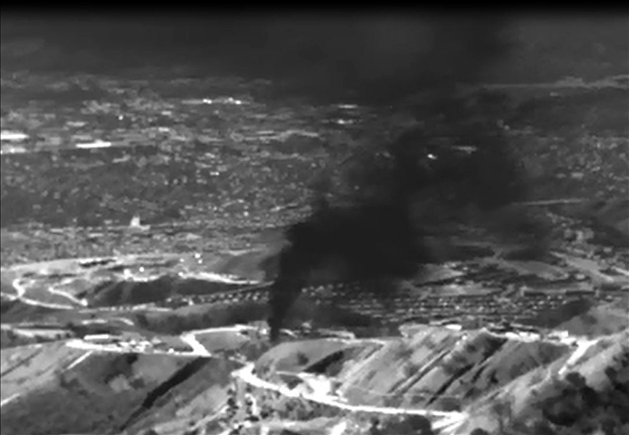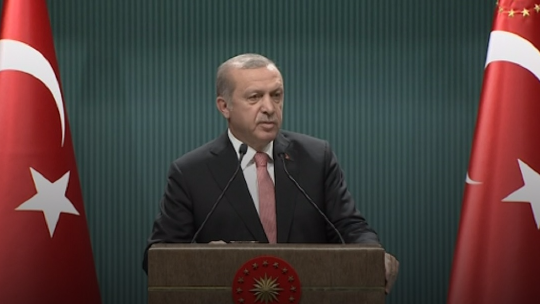
State of Emergency/Public Services Commission

STATE OF EMERGENCY DECREES HAVING FORCE OF LAW
While the treacherous coup attempt, which FETÖ attempted to stage in Istanbul and Ankara on July 15, was successfully repelled, studies to prepare a legal ground for the investigation of FETÖ’s organizational structure started immediately. As a result of five days of intense activities led by President Recep Tayyip Erdoğan, a state of emergency was declared in Turkey. The state of emergency was followed by decrees, which were enacted one after another having the force of law, in order to investigate the organization’s structure in various sectors.
State of emergency in summary
The government employs a state of emergency in cases that are deemed to require the application of emergency procedures, such as natural disasters, dangerous epidemics, severe economic depression and widespread acts of violence that seriously disturb public order.
The authority of the governing bodies during states of emergency is expanded even more than normal. In addition, when deemed necessary, citizens from a certain age group may be obliged to work and give money and assets in such states. The common and one of the most controversial aspects of previous states of emergency was that they were generalized and that judicial rulings on them were generally limited.
State of emergency in the Constitution
According to Articles 119 to 122 of the Constitution, there are four types of administrative functions in Turkey:
- Martial Law
- State of Emergency
- Mobilization
- Warfare
Article 121 of the Constitution stipulates: “In the event of a declaration of a state of emergency under the provisions of Articles 119 and 120 of the Constitution, this decision shall be published in the Official Gazette and shall be immediately submitted to the Grand National Assembly of Turkey for approval. If the Grand National Assembly of Turkey is in recess, it shall be immediately assembled. The Assembly may alter the duration of the state of emergency, may extend the period for a maximum of four months each time at the request of the Council of Ministers, or may lift the state of emergency.”
History of state of emergency in Turkey
General states of emergency have been declared three times in the history of Turkey. The martial law, which was in place from 1978 to 1983, was replaced with a state of emergency, which remained in force until November 2002. With a decision made on Nov. 30, 2002, the state of emergency that had long been in force in certain regions was completely lifted.
Declaration of the state of emergency in 2016
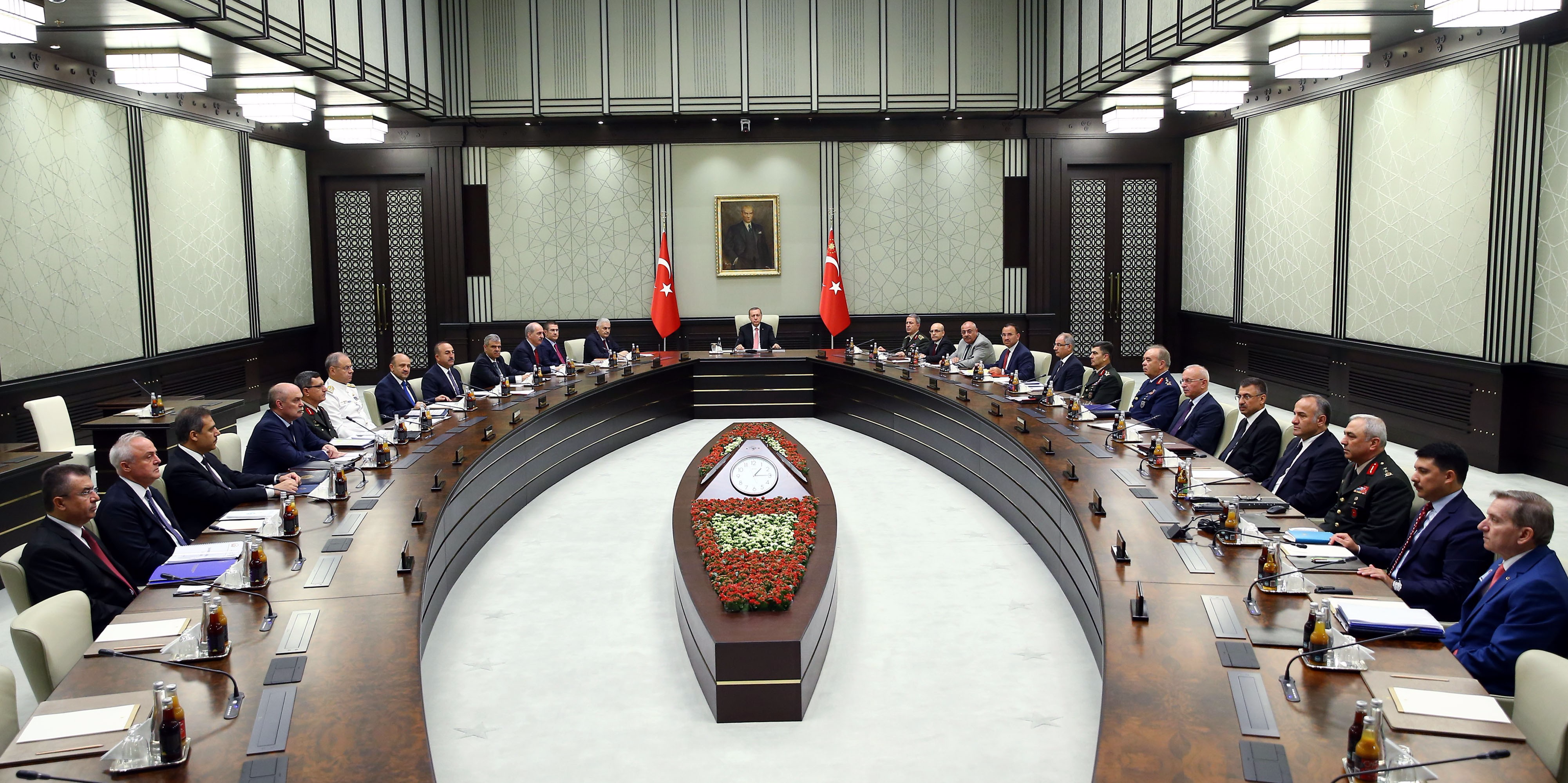
Following the coup attempt, a new state of emergency was declared in Turkey on July 20, 2016. Five days after the coup attempt, President Recep Tayyip Erdoğan initiated a busy work program. He firstly convened the National Security Council at the Presidential Palace. The meeting lasted four hours and 40 minutes.
Then, Erdoğan convened the Council of Ministers and held a press conference following the almost-two-hour meeting. His statements were translated into English, France and Arabic. Erdoğan announced that a three-month state of emergency had been declared during the meeting, which was broadcast live by many international media outlets.
The three-month state of emergency, which came into force at 1:00 a.m. on July 21, 2016 was voted on by the Grand National Assembly of Turkey. It was accepted with 346 votes for and 115 votes against, and thus went into force.
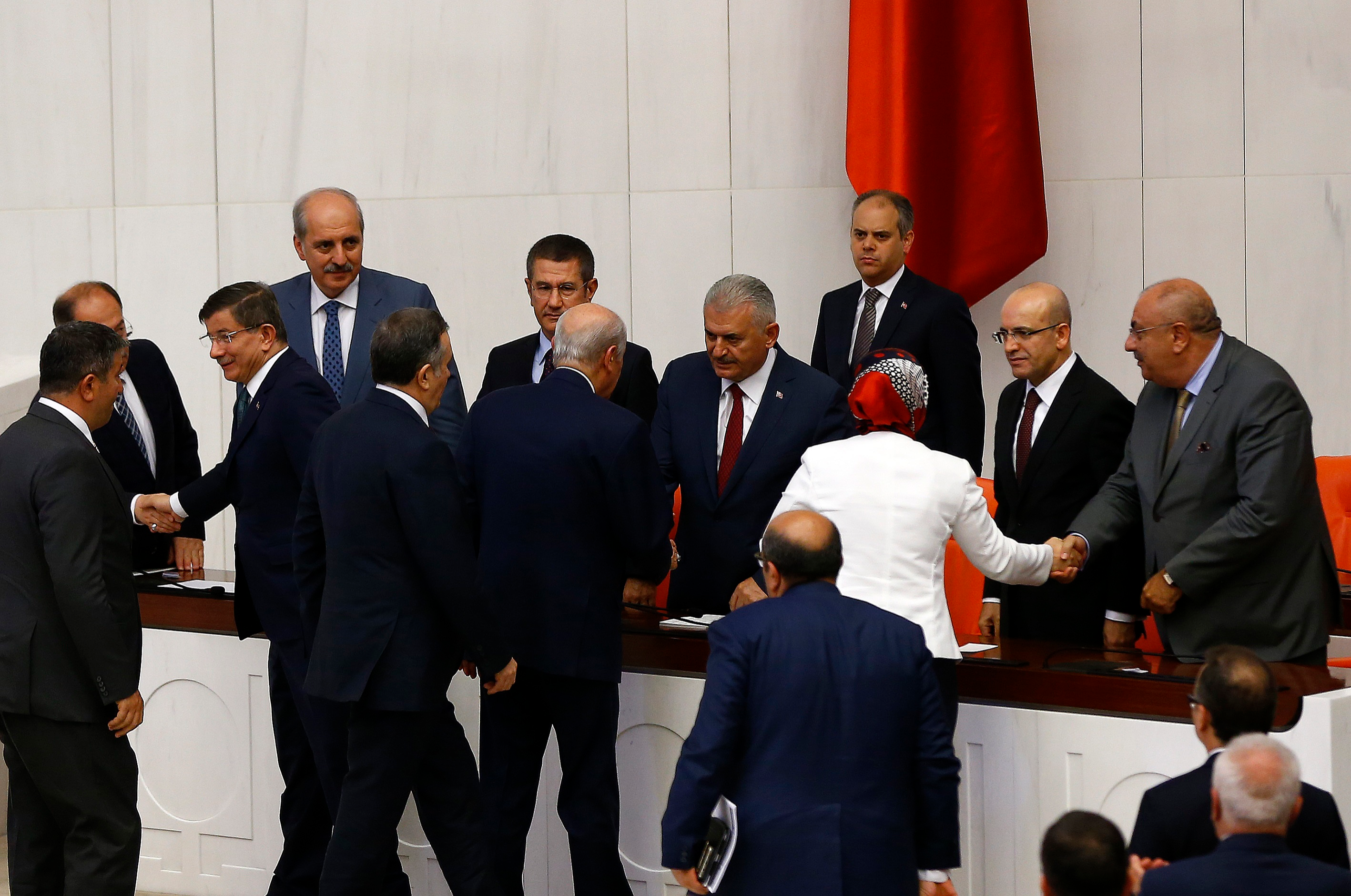 The original term for state of emergency, which ended on Oct. 19, was extended by another three months with a Cabinet decree.
The original term for state of emergency, which ended on Oct. 19, was extended by another three months with a Cabinet decree.
Having terminated on Jan. 19, the state of emergency was yet again extended by another three months in accordance with new decisions.
Why was the state of emergency declared?

President and Commander-in Chief Recep Tayyip Erdoğan declared a three-month state of emergency on July 20 in accordance with Article 120 of the Constitution in order to quickly remove FETÖ, which attempted a coup with all of its elements.
- Article 120 of the Constitution says:
In the event of serious indications of widespread acts of violence aimed at the destruction of the free democratic order established by the Constitution or of fundamental rights and freedoms, or serious deterioration of public order because of acts of violence, the Council of Ministers, meeting under the chairpersonship of the President of the Republic, after consultation with the National Security Council (MGK), may declare a state of emergency in one or more regions or throughout the country for a period not exceeding six months.
The objective of the state of emergency
President Erdoğan said: “We first convened the National Security Council and then the Council of Ministers today. Following the National Security Council meeting, we decided to advise the government to declare a state of emergency in our country in accordance with our Constitution. It was decided that a three-month state of emergency will be declared in Turkey. The state of emergency is aimed at taking necessary steps in an efficient and rapid way in order to remove this threat against democracy, the rule of law, and the rights and freedoms of our people. The coup attempt revealed those who side with the rule of law and those who side with coup makers.”

International examples of states of emergency
States of emergency have been applied in various countries around the world at different times. The most recent examples include:
- France declared a state of emergency after the 2015 Paris attacks.
- The U.S. declared an emergency state after the 9/11 attacks in 2001 and it is still in force.
- Venezuela declared a state of emergency because of protests in 2016.
- Myanmar enforced a three-year state of emergency in the Muslim-populated state of Rakhine.
- The Philippines declared a state of emergency after a tropical storm disaster.
- Crimea declared a state of emergency because of an energy shortage in Ukraine.
- California Governor Jerry Brown declared a state of emergency because of a massive gas leak on Jan. 6, 2016.
- Some states in the U.S., such as North Carolina, Tennessee, Maryland, Pennsylvania, Georgia, Virginia, West Virginia and New Jersey declared states of emergency because of snowstorms.
- The U.S. state of Florida declared a state of emergency in Orange Country after an attack on a nightclub in Orlando on June 12, 2016.
- In Alberta, Canada, the Regional Municipality of Wood Buffalo declared a state of emergency after the Fort McMurray Wildfire.
The state of emergency after July 15
- After the 2016 coup attempt, a nationwide state of emergency was declared for three months in Turkey.
- The state of emergency, which ended on Oct. 19, was extended for another three months with the decision of the Council of Ministers.
- The state of emergency, which ended on Jan. 19, was extended for another three months in accordance with a new decision.

DECREES HAVING FORCE OF LAW
Decree laws were prepared within the framework of the state of emergency, which was declared five days after the coup attempt. Many different issues, from FETÖ activities in the military to its structuring in education and the economy have been investigated within the scope of decree laws.
Decrees having force of law in summary
With a general definition, a decree law is a decree that the government issues depending on an authority that is granted by the legislative body with an empowering law that determines the issue, period and purpose, or by depending directly on the Constitution. It has the power of a legislatively passed law and gains the power of law in formal and real terms with parliamentary approval.
According to Article 87 of the Constitution, one of the tasks and authorities of the Grand National Assembly of Turkey (TBMM) is to “entitle the Council of Ministers; to issue decrees having the force of law on certain matters.”
Decrees having force of law in the Constitution
Article 91 of the Constitution regulates the issue of granting authority to issue decree laws.
“The Grand National Assembly of Turkey may empower the Council of Ministers to issue decrees having the force of law. However, with the exception of martial law and states of emergency, the fundamental rights, individual rights and duties included in the first and second chapters and the political rights and duties listed in the fourth chapter of the second part of the Constitution, shall not be regulated by decrees having the force of law.”
Two different decree laws
Decrees having the force of law fall in two categories: ordinary and extraordinary.
Ordinary decrees having force of law in Turkey are enacted by the Council of Ministers. This authority is granted to the Council of Ministers by the TBMM with the empowering law. This kind of decree law cannot regulate fundamental rights, individual rights and duties, or political rights and duties.
Extraordinary decrees having the force of law in Turkey are enacted by the Council of Ministers headed by the president. There is no need for the TBMM to grant the empowering law. Regulations can be made on condition that obligations arising from international law are fulfilled.
Decree laws issued after July 15
The state of emergency process was laid on a legal ground after decrees having the rule of law were published in the Official Gazette. While investigations and dismissals were held in light of legal regulations, the decree laws issued in all fields ensured the arrests of many FETÖ members.
Education
Decree Law No. 667 – Education
- After the state of emergency was put into force, the first decree having force of law was published in the Official Gazette. A total of 35 health institutions and organizations; 1,043 private education institutions, organizations, student residences and boarding houses; 1,229 foundations and associations; 19 trade unions, federations and confederations; and 15 foundations and higher education institutions were closed down.
- Students registered at the higher education institutions that were closed down will be placed at state universities or foundation universities by the Council of Higher Education (YÖK). Students to be placed as such shall continue to pay tuition they would have paid to their previous universities until graduation. YÖK is responsible for and authorized to establish procedures and principles related to application of this, providing guidance on the application, taking all types of measures and eliminating hesitations that might arise.

Decree Law No. 668 – Education
- Decree Law No. 668 concerned the recruitment of contracted teachers shall be made in accordance with the Public Personnel Selection Examination (KPSS) scores of candidates who possess the requisite general qualifications and special conditions for teachers. Teaching candidates shall be assigned in accordance with their scores from the oral examination held by the National Education Ministry. Up to three candidates shall take the oral exam for each vacant position. Contracted teachers shall not be assigned somewhere else for four years and the spouses of employed teachers shall be contingent on them[PK1].

Decree Law No. 669 – Education
- Decree Law No. 669 closed down war colleges, military high schools and sergeant preparation schools. Instead, a new university called the National Defense University was established under the purview of the National Defense Ministry. Subject to the rectorate, the university consists of newly established institutes, which are aimed at training staff officers and offering postgraduate education, in addition military academies, Air Force academies, Naval academies and sergeant high schools.

Decree Law No. 672 – Education
- Decree Law No. 672 dismissed teachers determined to be affiliated or in contact with terrorist organizations or structures that the National Security Council considers to operate against the state’s national security. A total of 28,163 personnel, including teachers, were dismissed from the National Education Ministry.

Decree Law No. 673 – Education
- Decree Law No. 673, 158 stripped students undergoing training abroad who were found to have some relation, connection or contact with FETÖ, which is considered a threat to national security, were stripped of their studentships.

Decree Law No. 674 – Education
- Decree Law No. 674 gives teachers at private teaching institution the ability to work as contracted teachers without KPPS scores. Accordingly, educational staff who have worked for private teaching institutions and student study centers as of March 14, 2014 and who have been paid insurance premiums for at least six years as of Jan. 1, 2014, can be assigned to vacant contracted teaching positions in regions that rank in priority in terms of development. They are not required to have KPSS scores, but have to fulfil other conditions and pass the oral exam, which will be held once in six months.

Decree Law No. 676 - Education
- With Decree Law No. 676 which was published in the official gazette, the clause with respect to Higher Education Supervisory Board members cited in Higher Education Law No. 2547 dated Nov. 4, 1981, was amended from “each member to be elected by the General Staff and National Education Ministry” to “each member to be elected by National Defense Ministry and National Education Ministry.” The provision: “Higher Education Supervisory Board members shall be selected from among 15 candidates to be recommended by the Higher Education Council (YÖK) from professors and those who have served as inspectors or auditors at the ministry’s central organizations for at least 10 years,” with respect to Higher Education Supervisory Board members. The terms in office of the members is three years. They will be dissociated from the institutions where they work during their terms in office.
- The decree law brought a new regulation with respect to the assignment of rectors, which was added to Article 13, Clause a, Paragraph 1 of Higher Education Law No. 2547. Accordingly, rectors at state universities are to be appointed by the president from among three candidates who are to be recommended by YÖK and who have served as a professor for at least three years. If one of the recommended candidates is not appointed within one month and YÖK does not present new candidates within two weeks, the president will directly assign the rector. The term of office of rectors is four years. Rectors whose terms in office end can be reassigned in the same way. However, they are not to serve as rectors for more than two terms at the same state university. The rector represents the legal entity of the university or the high technology institute. Rectors of universities established by foundations are to be appointed by the President on the proposal of the YÖK board of trustees and the positive view of the YÖK.
- The decree law also stipulates that private tutoring courses are to continue education and training activities in a science group as of Aug. 1, 2017. Private tutoring courses for which there is no permission to open institutions to operate in a science group as of Aug. 4, 2017, at the latest, are to be permanently closed down.

Economy
Decree Law No. 667 – Economy
- Decree Law No. 667 gives the authority to annul the rental agreements of organization members. The rental agreements of these leaseholders can be rescinded in the case that they are leaseholders of all kinds of immovable properties belonging to other public institutions, boards, supreme councils, organizations, public economic enterprises and their subsidiaries, institutions and businesses established by a special, or other public partnerships and foundations where more than 50 percent of capital belonging to the public.
Decree Law No. 669 – Economy
- Decree Law No. 669 stipulates that decisions are not to be made on the postponement of bankruptcy during the state of emergency with respect to the requests for the postponement of bankruptcy before the declaration of the state of emergency. No precautionary decisions shall be made after the declaration of the state of emergency or during state of emergency, and any precautionary decisions made in this process shall be immediately annulled.

Decree Law No. 674 – Economy
- Decree Law No. 674 stipulates that no trustee shall be appointed to companies and the sale and liquidation transactions thereof shall be done by the Savings Deposit Insurance Fund (TMSF). The TMSF may decide to sell or terminate companies or company assets if it finds their current situation “unsustainable due to their financial situation, partnership structure, other problems or market conditions.”

Decree Law No. 684 – Economy
- Decree Law No. 684 concerns those who were injured due to terrorist acts and who were not pensioned as they were not considered disabled by relevant legislation. They can now collect pensions in accordance with their degree of disability on request.

Discharges
Decree Law No. 668 – Discharge
- Decree Law No. 668 was enacted on July 27, giving the names of personnel discharged from the Turkish Armed Forces (TAF). A total of 1,684 soldiers with some relation, connection or contact with FETÖ, which was found to threaten national security, including 87 generals, 726 commissioned officers and 256 noncommissioned officers in the Land Forces Command; 32 admirals, 59 commissioned officers and 63 noncommissioned officers in the Naval Forces Command; and 30 generals, 314 commissioned officers, 117 noncommissioned officers in the Air Force Command, were discharged. Among them were former Air Force Commander Akın Öztürk and 2nd Army Commander Adem Huduti.

Decree Law No. 675 – Discharge
- With Decree Law No. 675, 39 soldiers, including two generals and nine pilots; three TBMM personnel; 31 National Education Ministry personnel and one AFAD personnel were removed from the list of those discharged. The decree law published the names of personnel who were removed from the lists of discharged personnel cited in the previous Decree Laws No. 668 and 672.

Decree Law No. 677 – Discharge
- Decree Law No. 677 discharged 15,726 civil servants working for the Turkish Armed Forces (TSK), Gendarmerie General Command, General Directorate of Security, ministries and affiliated institutions. A total of 5,749 civil servants were discharged, with 2,906 from Interior Ministry and affiliated institutions, 1,184 from YÖK, 752 from the Health Ministry, 526 from the Finance Ministry, 131 from the Family and Social Policies Ministry, 119 from the National Education Ministry, 94 from the Presidency of Religious Affairs (Diyanet), 73 from the Energy and Natural Resources Ministry, 52 from the Forestry and Water Affairs Ministry, 45 from the Turkish Radio and Television Corporation (TRT), 23 from the National Defense Ministry, 15 from the High Council of Judges and Prosecutors (HSYK), 14 from AFAD, 13 from the Youth and Sports Ministry, 11 from the Culture and Tourism Ministry and one from the Prime Ministry Turkish Cooperation and Coordination Agency (TİKA).
- In accordance with the same decree law, 157 people who were previously discharged from their positions in Decree Laws Nos. 672 and 675, two civil servants from AFAD, 36 from the Diyanet, one from TİKA, one from the General Directorate for Foundations, 41 from the Social Security Institution (SGK), 10 from the Food, Agriculture and Livestock Ministry, one from the Forestry and Water Affairs Ministry, 18 from the Health Ministry, 31 from the Transport, Maritime Affairs and Communications Ministry and 16 from higher education institutions were reinstated.

Decree Law No. 679 – Discharge
- Decree Law No. 679, enacted on Jan. 6, 2017, discharged 2,687 personnel from their duties, including two 2nd degree police chiefs, 14 3rd degree police chiefs, 37 4th degree police chiefs, 108 chief police officers, 47 chief superintendents, 202 superintendents, 562 deputy police chiefs, 91 chief police officers, 1,592 police officers, seven bazaar and neighborhood guards, and 25 civil personnel from the General Directorate of Security.
- Decree Law No. 69 shut down 83 foundations that had some relation, connection or contact with terrorist organizations, structures, organizations or groups that the National Security Council considered to operate against the state’s national security.

Decree Law No. 680 – Discharge
Decree Law No. 680 discharged 367 personnel from various public institutions and reinstated 124 others who were discharged in previous decrees. Accordingly, three personnel from the Saving Deposits Insurance Fund (TMSF); two from the Banking Regulation and Supervision Agency (BDDK); one from the Prime Ministry Turkish Cooperation and Coordination Agency (TİKA); one from the Environment and Urban Planning Ministry; 10 from the General Directorate of Land Registry and Cadastre; two from the Bank of Provinces; 134 from the Interior Ministry, including deputy governors, district governors and legal counselors; 23 from the General Directorate of Immigration; two from the Turkish Statistical Institute (TurkStat); one from the Public Oversight, Accounting and Auditing Standards Authority; two from the Student Selection and Placement Center (ÖSYM); and 186 from the Health Ministry and other institutions were discharged.

Public Sphere
Decree Law No. 667 – Public Sphere
- Decree Law No. 667 specified some measures to be taken with respect to public officials. Measures related to public officials apply to all public employees irrespective of institution or status. Civil servants, workers, and contracted and temporary personnel who were found to be members or affiliates of terrorist organizations were discharged.

Decree Law No. 680 – Public Sphere
- Decree Law No. 68, authorized the police to access identity information of internet subscribers and conduct investigations in virtual platforms while investigating crimes committed in virtual environments.
- Governorates can conduct security investigations and archive investigations into those who will be employed as private security officers and those who will work as founders or managers in private security companies, alarm monitoring centers and private security training institutions. People determined to have some type of relation, connection or contact with terrorist organizations, structures, organizations or groups that the National Security Council considers to operate against national security will not be able to work in at private security companies or private security units.

Commandership
Decree Law No. 669 – Commandership
Decree Law No. 669, brought the Land, Naval and Air Forces Commands under the National Defense Ministry. Provisions concerning the duties and authorities of the chief of General Staff by other laws and which do not go against this law are reserved. It was also decided that the president and the prime minister, when deemed necessary, be able to obtain information directly from military commanders and other relevant staff and directly give orders to them, and that the issued order be immediately fulfilled without approval from any authority.

Decree Law No. 674 – Commandership
Decree Law No. 674, changed “martial law, mobilization” in the Coast Guard Command Law to “mobilization”. In addition, the instance of “martial law” in another article of the law was removed.

Decree Law No. 682 – Commandership
Decree Law No. 682 regulated disciplinary provisions binding law enforcement officers. The decree law evaluated indiscipline and accompanying punishments with respect to General Directorate of Security, Gendarmerie General Command and Coast Guard Command personnel, disciplinary supervisors and boards, disciplinary investigation procedures and other relevant issues.

Media
Decree Law No. 668 – Media
- Decree Law No. 668 shut down media outlets that had some relation or connection to some structures. A total of 16 television channels, three news agencies, 23 radio channels, 45 newspapers, 15 magazines, and19 publishing houses and distribution channels were closed down. Among these were Zaman newspaper, Bugün newspaper, Taraf newspaper, Aksiyon magazine, Sızıntı magazine, Nokta magazine, Cihan News Agency, Samanyolu news channel, Samanyolu TV, Bugün TV, Can Ercan TV, Kanaltürk TV, Dünya TV, Hira TV, Irmak TV, Barış TV, Kanal 124 TV, MC TV, Mehtap TV, Merkür TV, SRT TV, Tuna Shopping TV, Yumurcak TV, Muhabir News Agency and SEM News Agency.

Decree Law No. 683 – Media
- Decree Law No. 683 shut down two private television channels that had some relation, connection or contact with terrorist organizations or structures, organizations or groups the National Security Council considers to operate against national security. All movable property and all assets, receivables and rights belonging to the closed private television channels were transferred to the Treasury without documents or papers and free of charge.

National Defense Ministry
Decree Law No. 668 – National Defense Ministry
- Decree Law No. 668 made a raft of changes in the central organization of National Defense Ministry: the number of undersecretaries was increased to five, and included the Directorate of Supervisory Board; General Directorate of Military Factories; General Directorate of Shipyards; General Directorate of Military Justice Affairs and Laws; General Directorate of Recruitment; General Directorate of Personnel and Financial Management; General Directorate of Construction, Real Estate and National Mine Activity Center; General Directorate of Procurement Services; General Directorate of General Plans and Principles; Legal Consultancy, Communications and Information Systems Department; Support Services Department and other commanderships in the ministry.

Decree Law No. 669 – National Defense Ministry
- Decree Law No. 669 established a new university named the National Defense University within the body of the National Defense Ministry. Subject to the rectorate, the university consists of newly established institutes to train staff officers and offer postgraduate education, as well as military academies, Air Force academies, Navy academies and sergeant high schools.

Decree Law No. 674 – National Defense Ministry
- Decree Law No. 674 determined the analogous ranks of civil servants in the National Defense Ministry with those in in the Turkish Armed Forces. The rank of undersecretary is equivalent to full general; the National Defense Ministry rector is equivalent to lieutenant general; deputy undersecretaries, supervisory board chairmen and general managers are equivalent to major general; deputy general managers and independent department heads are equivalent to brigadier general; and department heads are equivalent to colonel. According to the decree law, equivalent ranks are essential to regulating military protocol relations. Civilian managers also benefit from lodging and social facilities in accordance with their rank. Ali Fidan, the first civilian undersecretary for national defense and a former governor of Düzce, was granted the equivalent rank of full general.

Health
Decree Law No. 669 – Health
- Decree Law No. 669 transferred the Gülhane Military Medical Academy (GATA) and military hospitals to the Health Ministry. Accordingly, GATA-linked teaching hospitals, Turkish Armed Forces Rehabilitation Care Center, military hospitals, dispensaries and similar health service units and health institutions belonging to the Gendarmerie General Command were transferred to the Health Ministry along with their rights and obligations, receivables and debts, and contracts and commitments. Their immovable properties were also allocated to the ministry.

Investigation
Decree Law No. 667 – Investigation
- Decree Law No. 667 determined the measures to be taken in investigations. Investigations of structures and their members who are found to threaten national security are be reported to the passport unit. It was also announced that arrest warrants for soldiers are to be fulfilled at penal execution institutions.

Decree Law No. 685 – Investigation
- Decree Law No. 685, established the State of Emergency Transactions Review Commission in order to evaluate and finalize applications with respect to transactions directly carried out with decree laws without applying any administrative acts on the grounds of having affiliation, relation, connection or contact with terrorist organizations or structures, or organizations or groups that the National Security Council considers to operate against national security.
- Decree Law No. 685 also includes the commission’s field of tasks with respect to transactions directly made in accordance with decree laws as part of the state of emergency. These tasks include discharge or severance from public service, profession or organizations where people serve; severance from studentship, the closure of associations, foundations, trade unions, federations and confederations, private health institutions, private education institutions, foundation higher education institutions, private radio and television organizations, newspapers and magazines, news agencies, publishing houses and distribution channels; and the disqualification of the rank of retired staff. The commission is able to request any information and document it may require from public institutions and organizations and judicial authorities on condition of hiding legislation provisions with respect to state secrets.

Turkish Armed Forces
Decree Law No. 668 – Turkish Armed Forces
- The second decree law issued concerns the measures to be taken as part of the state of emergency. It decreed that military personnel who were discharged from the Turkish Armed Forces are to be deprived of their military rank and civil service regardless of prison sentence and they cannot be accepted into the Turkish Armed Forces again.
- Decree Law No. 668, which was enacted on July 27, published the names of personnel discharged from the Turkish Armed Forces (TSK). Accordingly, 1,684 soldiers with some relation, connection or contact with FETÖ, which was found to threaten national security, including 87 generals, 726 commissioned officers and 256 noncommissioned officers in the Land Forces Command; 32 admirals, 59 commissioned officers and 63 noncommissioned officers in the Naval Forces Command; and 30 generals, 314 commissioned officers, 117 noncommissioned officers in the Air Force Command were discharged. Among them were former Air Force Commander Akın Öztürk and 2nd Army Commander Adem Huduti.

Decree Law No. 669 – Turkish Armed Forces
- Decree Law No. 669, discharged 1,389 military personnel who had some relation, connection or contact with FETÖ, which was found to threaten national security, from the Turkish Armed Forces. Among them were chief military assistant to President Recep Tayyip Erdoğan Colonel Ali Yazıcı, Chief of General Staff General Hulusi Akar’s aide Infantry Liutenant Colonel Levent Türkkan, his key advisor Colonel Orhan Yıkılkan, his former executive assistant Staff Colonel Ramazan Gözel and National Defense Minister Fikri Işık’s executive assistant Colonel Tevfik Gök.
- The decree law also amended the structure of the Supreme Military Council (YAŞ). It assigned the prime minister, chief of the General Staff, deputy prime ministers, justice minister, foreign minister, interior minister and national defense minister and commanders of forces as YAŞ members.

Decree Law No. 681 – Turkish Armed Forces
- Decree Law No. 681 brought some amendments to the Internal Service Act of the Turkish Armed Forces. The Gendarmerie General Command and the Coast Guard Command were removed from the definition of the Turkish Armed Forces. It was made imperative to abolish the obligation to issue orders in uniform and to fulfill orders given by civilian superiors to subordinates. Armored ambulances were also added to vehicles not subject to the Vehicle Law.
- With the amendment of the Personnel Law of the Turkish Armed Forces, the classes of commissioned officers, which were previously determined by the chief of the General Staff, as well as which of these classes are combatant and auxiliary class, are now determined by the National Defense Ministry based on the opinion of the chief of General Staff. The addition of new commissioned officer classes or removal of existing ones are to be carried out by the National Defense Ministry by taking into account the opinion of the chief of General Staff on the proposal of the force commanders.

Judiciary
Decree Law No. 667 - Judiciary
- Decree Law No. 667 includes justifications for measures proposed for the members of the judiciary and other public officials. These measures are aimed at the discharge of all those from all public institutions and organizations who are considered to be a member of or have some relation, connection or contact with terrorist organizations, with FETÖ taking the lead, or structures, organizations or groups the National Security Council considers to engage in activities against national security.

Decree Law No. 671 – Judiciary
- With the provisional article added to the Law on the Execution of Punishment and Security Measures under Decree Law No. 671, approximately 38,000 people were released from closed and open prisons. With Article 32 of the decree law, a provisional article was added to the Execution of Punishment and Security Measures. Previously, prisoners with good conduct whose conditional release would take place within one year or less were released on probation. The decree law increased this period to two years. As such, prisoners with good conduct with two years or less until conditional release can be released one year earlier on probation.

Decree Law No. 673 - Judiciary
- Decree Law No. 673 canceled the membership of the presidents and members of the Monitoring Boards of Penitentiary Institutions and Detention Houses and required re-election to be held within 10 days.
- Judges and prosecutors who retired at their own discretion are able to return to their profession if they so wish. Judges and prosecutors who resigned on multiple occasions or retired on their own will can be reappointed. The regulation states that these such people are to apply within two months of the enforcement of the decree law provided they have not lost the qualifications required for admission to the profession. Appointments are to be made under the conditions of the retirement date and upon the decision of approval from the relevant department of the High Council of Judges and Prosecutors.

Decree Law No. 674 - Judiciary
- Decree Law No. 674 accelerated the construction of new prisons since they are filled to capacity. New prisons may be tendered irrespective of the condition of inclusion in the investment program and having subvention. Prisons can now be built in areas covered by the Pasture Law.






